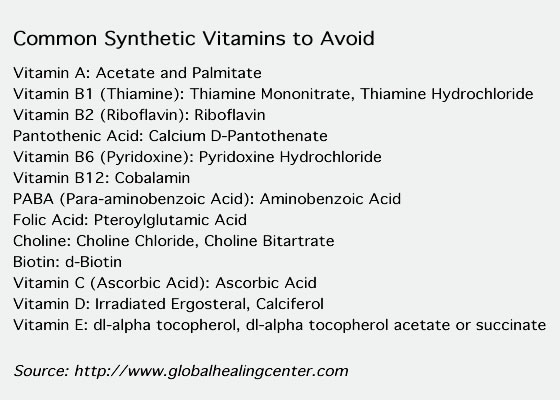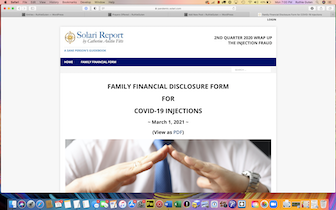How To Choose A Dietary Supplement
How To Choose A Dietary Supplement
In February of 2015, the New York Attorney General (AG) sent cease and desist letters to several major retailers alleging that most store brand supplements were found to contain contaminants that were not identified on ingredient labels (only 21% of the supplement tests Identified DNA from the plant species that were listed on the labels). As a result, many consumers became wary of all nutritional supplements and the supplement industry was shaken up.
Manufacturers and retailers complained that the DNA barcode testing that was used by the FDA was inappropriate. The Attorney General refused to release any further information about the testing methods used. There are two sides (or more) to every story.
Dietary supplements are regulated under the framework established by The Dietary Supplement Health and Education Act of 1994 (DSHEA), which was an amendment to the U.S. Federal Food, Drug and Cosmetic Act. What is the difference between dietary supplements, functional foods, and nutraceuticals?
Dietary supplements are substances you eat or drink. Active ingredients in many dietary supplements have been used for thousands of years to help health and to treat illness. They are regulated by The U.S. Food and Drug Administration (FDA) as foods and not as medicine, yet they are regulated differently from drugs and other foods,
- They can be vitamins, minerals, herbs or other plants, amino acids or a combination of such.
- They can be purchased in pill, capsule, tablet, or liquid form.
- They should not be considered a substitute for food
- They can be sold without research on how well it works. Manufacturers of dietary supplements cannot legally represent them as a cure, treatment, or prevention of any disease. They can represent that they contribute to health maintenance and well-being.
- Supplements are not intended to diagnose, prevent, cure, or treat disease.
Functional Foods are a food product that may offer benefit beyond nutrition.
Nutraceutical is a marketing term that was coined by Stephen DeFelice, M.D. in 1989 as a combination of the word nutrition with the word “pharmaceutical”.
With a weak regulatory framework for dietary supplements in the U.S., pre-sale testing of product quality and finished product specifications are NOT REQUIRED. The expected result is a weaker commitment to quality, which might result in erratic product quality. Therefore, nobody should really be surprised with the lack of quality control found in the supplement industry today.
It’s even more of a challenge when herbs are used in the formulation of dietary supplements as a single plant species could have hundreds of biologically-active compounds (as opposed to pharmaceuticals that are manufactured under careful laboratory guidelines). Additionally, processing of an herb may alter the DNA, so the DNA barcoding testing method used by the New York AG may not have provided accurate results.
So what are we to do? How do we know what supplements to trust?
Here are my humble recommendations:
- Stay away from synthetic vitamins.
- Stay away from concentrated molecules (e.g. – high energy drinks with concentrated amounts of caffeine)
- Choose food-source bio-available minerals
- If you see the words “100 percent natural” on the product’s label, know that manufacturers can use the word “natural” on their nutritional products if at least 10 percent of the product comes from natural food sources. Yes, you read it correctly. Only 10%.
- Look for products that are “100 percent plant-based” or “100 percent animal-based”. (As recommended by The Organic Consumers Organization.)
- Read the “food source” list on the label. If you don’t see a list of food sources, then the product is synthetic.
- Look for whole foods in the ingredient list instead of individual nutrients. If you see a specific vitamin as opposed to the food source, chances are high that the ingredient is synthetic.
- Certain synthetic salt forms are added to supplements to increase the stability of vitamins or minerals. If you see salt forms like acetate, bitartrate, chloride, gluconate, hydrochloride, nitrate and succinate, chances are high that the product is synthetic. (Words that end in “ide” or “ate” are indicative of salt forms, which are synthetics. Also, if you see “dl” before the name of an ingredient, the supplement is synthetic.
- Avoid supplements that contain toxic ingredients like magnesium stearate (or stearic acid), monosodium glutamate (MSG), Carnauba wax (which is used in car wax and shoe polish), and titanium dioxide, which is a carcinogen. Many toxic ingredients may also be disguised as “natural flavors.”
- Consult with a pharmacist before purchasing a vitamin or mineral supplement to help you identify a natural or synthetic vitamin supplement. Make sure your pharmacist knows if you are allergic to any foods or medications.
- Consult with your health care provider prior to taking a new supplement.

References:
- http://www.ag.ny.gov/press-release/ag-schneiderman-asks-major-retailers-halt-sales-certain-herbal-supplements-dna-tests
- http://www.globalhealingcenter.com/natural-health/synthetic-vs-natural-vitamins/
- http://www.webmd.com/food-recipes/dietary-supplements-topic-overview
- http://arthritis.about.com/od/alternativetreatments/f/nutraceutical.htm
- https://www.sciencebasedmedicine.org/supplements-are-the-wild-west-of-health-one-attorney-general-is-out-to-change-that/#more-36856
- http://www.naturopathic.org/content.asp?contentid=35
- http://foodmatters.tv/articles-1/how-to-tell-if-a-vitamin-is-natural-or-synthetic




